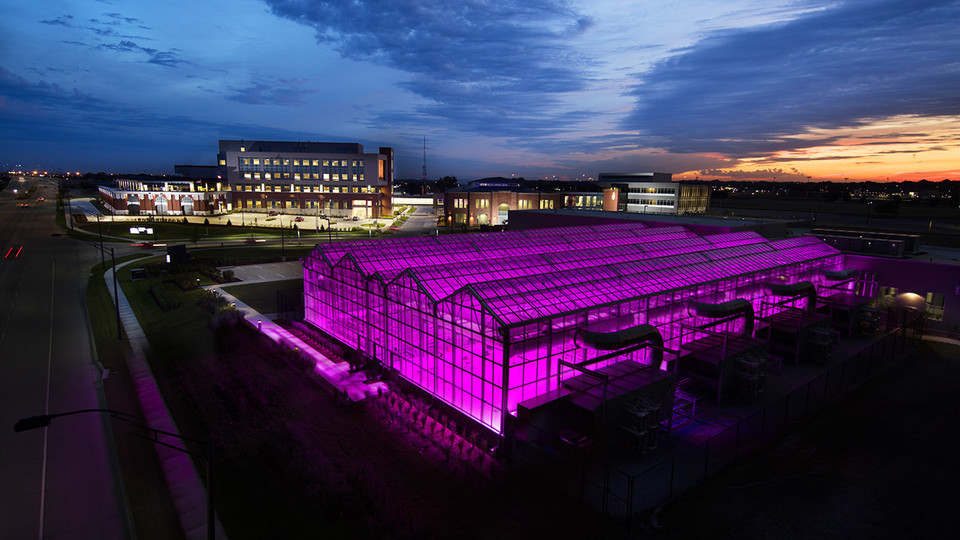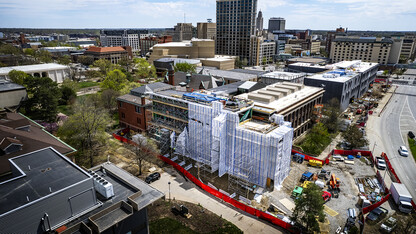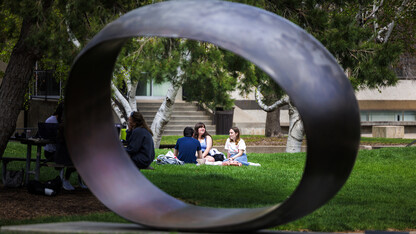· 4 min read
All but critical research suspended effective immediately

As the COVID-19 response in Nebraska continues to evolve, the University of Nebraska–Lincoln is transitioning to allowing only critical research activities to continue until further notice.
The policy was made in alignment with the University of Nebraska’s decision to further restrict campus activity and ensure protection of the health and safety of researchers and the community at large.
Effective April 8, Nebraska will conduct only what are considered “critical research activities. Those include research related to COVID-19; activities that, if temporarily discontinued, would result in years of losses; activity that maintains critical samples, animal or plant populations, and biological specimens; activity that maintains critical equipment; seasonally dependent agricultural or environmental work; and several other specific types of research activities. See the COVID-19 research planning website for a complete list of critical research activities and other details.
Other research may be continued, but only with approval from relevant college and ORED administrators. Before conducting other ongoing or new research not considered critical, faculty must have appropriate research compliance approvals and must submit a request for approval from the appropriate unit heads and ORED administrators.
Researchers uncertain whether their activity meets the criteria should consult with their unit head or department chair.
Other considerations:
- All new animal research unrelated to COVID-19 and in-person human subjects research are suspended. Requirements related to compliance approval have not changed. Principal investigators should not engage in work that has not been approved by the appropriate compliance groups.
- Researchers are encouraged to use a “buddy system” when possible: One person works on a given critical research activity at a campus laboratory or research site but first notifies at least one other person outside the site where and when they are working. If two or more people are needed on site simultaneously, they are required to do so while maintaining social distance. Evening and weekend work is not recommended.
- Research that can be conducted remotely and comply with safety and social distancing requirements will be sustained. Examples include human subjects research that can occur using remote connections; data analysis; work with databases or online sources; writing manuscripts or grant applications; research planning; and export-controlled research involving a determination or technology control plan that can be conducted securely via remote access.
- Researchers will have limited access to buildings and facilities in order to sustain critical research. Academic units and ORED are developing a list of designated personnel who will have access to academic buildings for the purpose of conducting critical research only. For questions about access, researchers should work with their unit leaders. Other employees will not have building access during this time.
- Investigators are urged to continue using appropriate safety and social distancing practices, maintaining a distance of at least 6 feet between people. If travel to an outdoor location is required to conduct critical research, investigators must use appropriate social distancing practices during travel, including in vehicles. Travel continues to be restricted. For more on those guidelines, see COVID-19 research planning website.
- Access to all Nebraska research services continues remotely, including sponsored programs, proposal development, compliance, industry relations and communications.
- Personal protective equipment, or PPE, is a critical need for researchers and healthcare providers. Nebraska is taking inventory of available PPE on campus, as well as identifying groups and organizations that need such equipment. Research teams are encouraged to complete a web form to help build an available inventory and identify campus and community needs. Survey participation is voluntary.
Investigators are urged to monitor the COVID-19 research planning website, the university’s COVID-19 website, Nebraska Today and Research and Economic Development’s social media channels for updated policies and additional guidance.
Questions may be directed to Deb Hamernik, associate vice chancellor for research, at unlresearch@unl.edu with a copy sent to the appropriate college’s associate dean for research.







